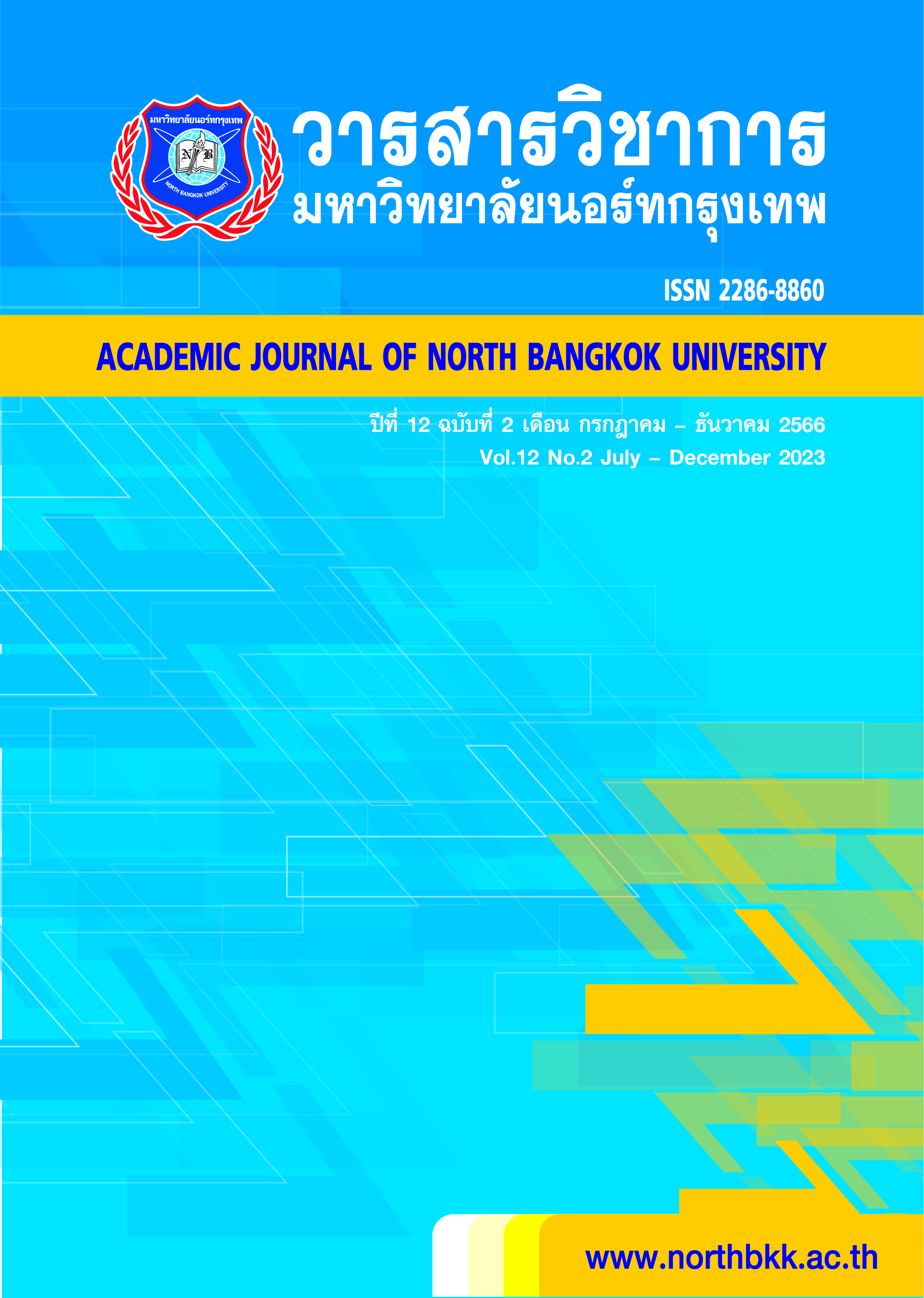Factors affecting the initiative potential of automotive parts manufacturers
Keywords:
Organization-wide quality management, Business strategy, Corporate culture, Initiative potentialAbstract
The purposes of this research were 1) to study the total quality management factor that affects the initiative potential of automotive parts manufacturers, 2) to study the business strategy factor that affects the initiative potential of automotive parts manufacturers, and 3) to study the corporate culture factor that affects the initiative potential of automotive parts manufacturers. This research is quantitative research with the 1st tier of automotive parts manufacturers. The data collected with the assistant manager. Population 447 firms refer to the list of Thailand automotive institution. The samples were 282 firms. Data analysis statistics were descriptive statistics: frequency, percentage, mean, and standard deviation. Hyperthesis testing used multiple regression analysis: MRA, using Adjusted R2 statistics, F test, and t-test. To analyze the relationship between the factors of total quality management factor, business strategy factor, and organizational culture factor that affect the initiative potential of the automotive parts industry. The results found the total quality management tool, the business strategy and corporate culture build up the initiative potential of automotive parts manufacturers. The results of the analysis of the mean and standard deviation of quality management factors was at a high level. The variable with the highest mean was leadership. The results of the analysis of overall corporate strategy was at a high level. The variable with the highest mean was cost. The results of the analysis of overall organizational culture factors was at a high level. The variable with the highest mean was the hierarchical culture. The results of multiple regression analysis (MRA), the quality management factors all 6 dimensions predict the initiative potential of automotive parts manufacturers as 52.10 percent. In case leadership has changed 1 analysis unit that affects the innitative potential of auto parts manufacturers .293 analytical units. The highest factor impact to the initiative potential of automotive parts manufacturers was the leadership factor.
The result of the multiple regression analysis found that all 3 business strategy factors predict the initiative potential of automotive parts manufacturers as 64.40 percent. In case cost orientation changed 1 analysis unit that affects the innitative potential of auto parts manufacturers .317 analytical units. The highest factor impacts to the initiative potential of automotive parts manufacturers was cost focus.
The result of the multiple regression analysis found the organizational culture factors all 4 dimensions predict the initiative potential of automotive parts manufacturers as 72.10 percent. In case of transformational culture, change 1 unit of analysis that affects the innitative potential of automotive parts manufacturers .260 analytical units. The highest factor impacts to the initiative potential of automotive parts manufacturers was organizational culture of change.
References
ศุภวิศวร์ ปัญญาสกุลวงษ์; และกฤษณ์ แย้มสระโส. (2561). ความคิดสร้างสรรค์ในองค์กร. https://thaihomemaster.com/showinformation.php?TYPE=1&ID=1007.
Acar, A. Z., & Acar, P. (2012). The effects of organizational culture and innovativeness on business performance in healthcare industry. Procedia-Social and Behavioral Sciences, 58, 683-692.
Chaudhry, N.I., Awan, M.U., Bilal, A. & Ali, M.A. (2018, June). Impact of TQM on organizational performance: The mediating role of business innovativeness and learning capability. Journal of Quality and Technology Management, 15(1), 1-36.
Dararuang, K. (2016, May-August). Perceptions of individual-level of organizational culture and knowledge management influencing on innovations within KTIS Group. Journal of the Association of Researchers, 21(2), 58-68.
Dibrell, C.; & Moeller, M. (2011). The Impact of a service-dominate focus strategy and stewardship culture on organizational innovativeness in family-owned business. Journal of Family Business Strategy, 2(1), 43-51.
Hafeez, M. H., Basheer, M. F., Rafique, M. & Siddiqui, S. H. (2018). Exploring the links between TQM practices, business innovativeness and firm performance: An emerging market perspective. Pakistan Journal of Social Sciences, 38(2), 485-500.
Ferraresi, A. A., Quandt, C. O., dos Santos, S. A. & Frega, J. R. (2012). Knowledge management and strategic orientation: leveraging innovativeness and performance. Journal of Knowledge Management, 16(5), 688-701.
Krejcie, R.V. & Morgan, D.W. (1970). Determining sample size for research activities. Educational and Psychological Measurement, 30(3), 607-610.
Lee, V. H., Ooi, K. B., Tan, B. I. & Chong, A. Y. L. (2010). A structural analysis of the relationship between TQM practices and product innovation. Asian Journal of Technology Innovation, 18(1), 73-96.
Ulusoy, G., Günday, G., Kılıç, K.. & Alpkan, L. (2013). Business strategy and innovativeness: results from an empirical study. In Advances in Production Management Systems. Competitive Manufacturing for Innovative Products and Services: IFIP WG 5.7 International Conference, APMS 2012, Rhodes, Greece, September 24-26, 2012, Revised Selected Papers, Part I (pp. 685-692). Springer Berlin Heidelberg.
Valmohammadi, C. & Roshanzamir, S. (2015). The guidelines of improvement: Relations among organizational culture, TQM and performance. International Journal Production Economics, 164, 167-178.
Downloads
Published
How to Cite
Issue
Section
License
Copyright (c) 2023 Academic journal of north Bangkok university

This work is licensed under a Creative Commons Attribution-NonCommercial-NoDerivatives 4.0 International License.



